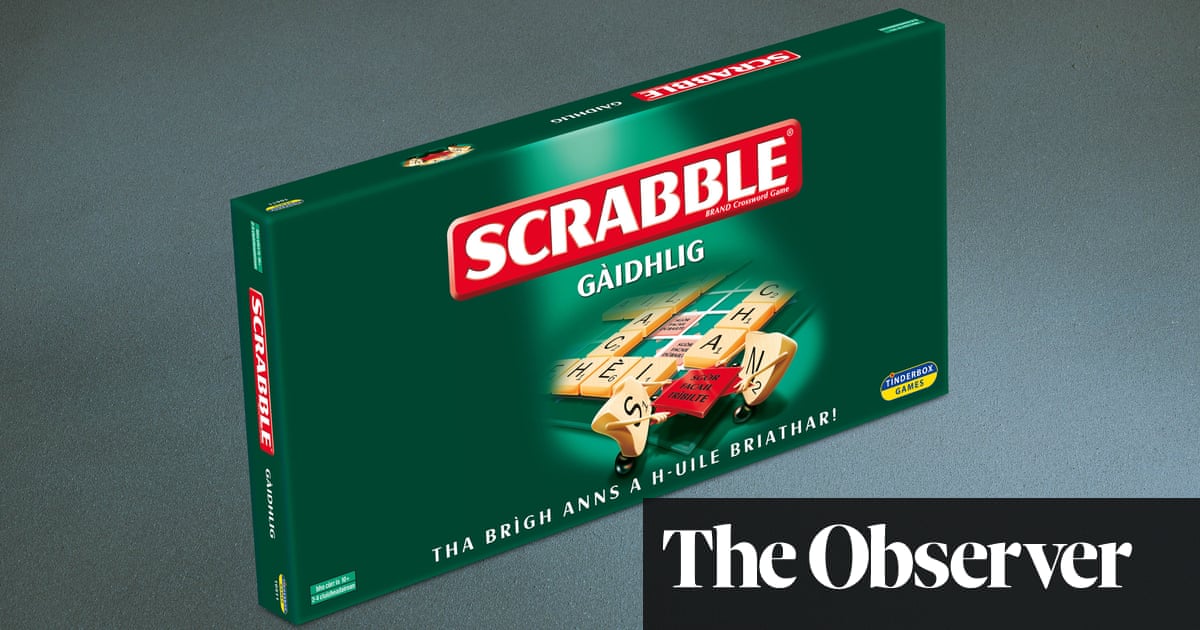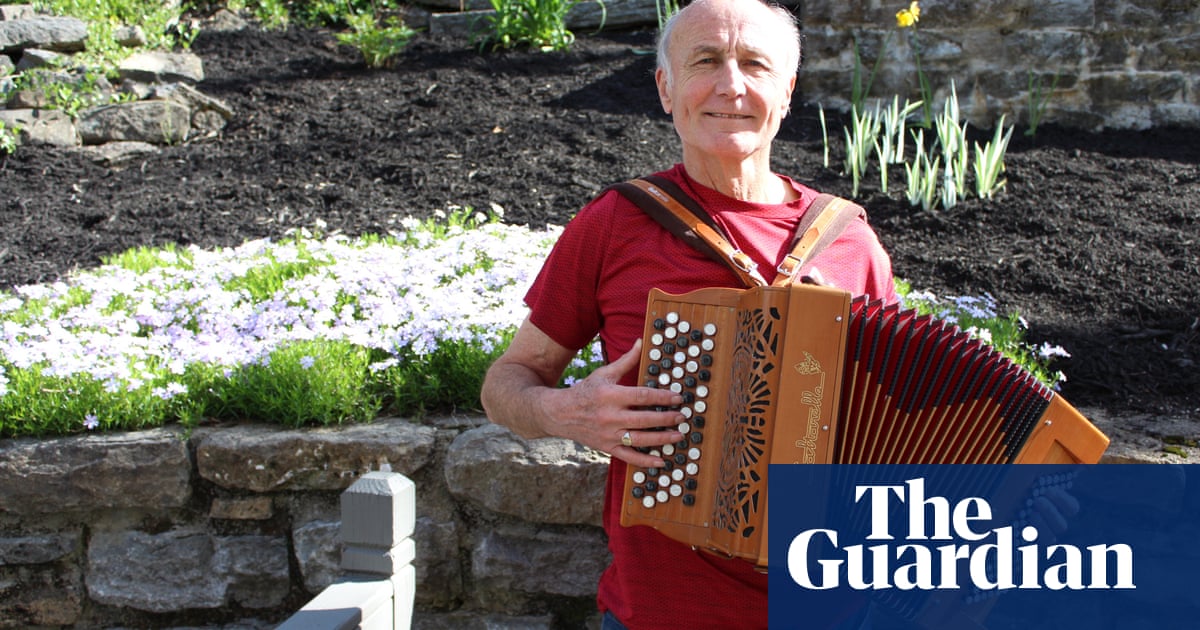‘The ick’, ‘boop’ and ‘chef’s kiss’ added to Cambridge Dictionary
A phrase popularised by Love Island joins more than 3,200 other entries relating to online gaming, parcel thefts and more“The ick” is among the more than 3,200 words, terms and phrases added to the Cambridge Dictionary so far this year.Meaning “a sudden feeling that you dislike someone or something or are no longer attracted to someone because of something they do”, the term has gained prominence online in recent years after being used on reality show Love Island. Continue reading...
The Guardian > Linguistics
Maggie Ross obituary
My wife, Maggie Ross, who has died suddenly aged 73, was an inspiring early years educator, who brought practical compassion and understanding in supporting the families of young children. As the manager of nurseries and early years centres in London, she had a particular flair for helping her staff to aspire to develop their careers.Born in Bristol, Maggie was the daughter of Barbara (nee Bees) and John Beall, a vicar and educator. She spent some of her early life in Kerala, south India, where her father taught, before returning to parishes in Bristol and then Oswaldtwistle, Lancashire. She went to Accrington high school. Continue reading...
The Guardian > Linguistics
Ein Wort für a fear of mentioning the war | Brief letters
Kriegserwähnungsangst | When nuclear Israel was invaded | Temperature drop | Gwyneth Hughes | George CarnarvonThe German language would have no difficulty in creating a compound word for Adrian Chiles’s fear of mentioning the war: Kriegserwähnungsangst, perhaps (12 June). There is already a related helpful term in common use. Vergangenheitsbewältigung describes the need to deal with, or come to terms with, the past. It reflects a long period of heart-searching in Germany.Raymond WilliamsYork• Alex Hamilton says no nuclear-armed country has been invaded (Letters, 10 June). In the 1973 Yom Kippur war, Egypt and Syria attacked Israel. As its forces were being overwhelmed in Sinai and the..
The Guardian > Linguistics
The big idea: the simple trick that can sabotage your critical thinking
Influencers and politicians use snappy cliches to get you on side – but you can fight fire with fireSince the moment I learned about the concept of the “thought-terminating cliche” I’ve been seeing them everywhere I look: in televised political debates, in flouncily stencilled motivational posters, in the hashtag wisdom that clogs my social media feeds. Coined in 1961 by psychiatrist Robert Jay Lifton, the phrase describes a catchy platitude aimed at shutting down or bypassing independent thinking and questioning. I first heard about the tactic while researching a book about the language of cult leaders, but these sayings also pervade our everyday conversations: expressions such..
The Guardian > Linguistics
Readers reply: what was humanity’s first word?
The long-running series in which readers answer other readers’ questions on subjects ranging from trivial flights of fancy to profound scientific and philosophical conceptsWhat was the first word that humanity uttered? There must have been one … Raymond Simms, HullSend new questions to nq@theguardian.com. Continue reading...
The Guardian > Linguistics
What was humanity’s first word?
The long-running series in which readers answer other readers’ questions on subjects ranging from trivial flights of fancy to profound scientific and philosophical conceptsWhat was the first word that humanity uttered? There must have been one … Raymond Simms, HullPost your answers (and new questions) below or send them to nq@theguardian.com. A selection will be published next Sunday. Continue reading...
The Guardian > Linguistics
‘I Gullah Geechee, too’: the educators keeping a language of enslaved Africans alive
Sunn m’Cheaux and Akua Page teach Gullah language and culture from juvenile incarceration facilities to HarvardIn 2019, Akua Page was invited to a juvenile incarceration facility in Richland county, South Carolina, to give a presentation about the Gullah Geechee language, an English-based creole created by enslaved Africans. When the teens walked into the room, Page recalled, they seemed hardened, angry and annoyed. Undeterred, she began her lesson.“I told them: ‘Hey, I understand y’all are Gullah Geechee,’” the 30-year-old educator said. “I validated them first, and said: ‘Y’all are bilingual. You’re not dumb, you don’t have a learning disability – you’re just bili..
The Guardian > Linguistics
The Oxford English Dictionary’s latest update adds 23 Japanese words
More than half of the borrowed words relate to cooking, while Kintsugi, the increasingly popular art of repairing broken pottery with gold lacquer is also includedKatsu, donburi and onigiri are among 23 Japanese words added to the Oxford English Dictionary in its latest update.More than half of the borrowed words relate to food or cooking. Santoku, a knife with a short, flat blade that curves down at the tip, and okonomiyaki, a type of savoury pancake, were both added. Okonomiyaki is derived from okonomi, meaning “what you like”, combined with yaki, meaning “to fry, to sear”. Continue reading...
The Guardian > Linguistics
The inspiration behind ‘bread and roses’ | Letter
Anthony Lawton on the first usage of the phrase by the American suffragette Helen Todd in 1911Under a headline that rightly says “we need bread but also roses”, your editorial (23 February) draws attention to the 1911 poem Bread and Roses, implying that this was the source of this powerful, inspiring phrase. The actual origin was a pillow in a house where the US suffragette Helen Todd was staying when she was speaking at a campaign rally in 1910. In September 1911, she wrote in The American Magazine: “I saw that Mother Jones’ pillow was sent to her with the inscription, ‘Bread for all, and Roses too’.” She went on: “woman is the mothering element in the world and her vote wil..
The Guardian > Linguistics
Of course we should let the children play, but should we let them swear as well? | Emma Brockes
A teacher told off a seven-year-old boy in the US for saying ‘Jesus Christ’. Should we care?A big topic of conversation in our house is how much stricter English schools are than their American equivalents. What if, one of my children will say as we leave the house in the morning, I wore what I’m wearing to school in England? (You’d be sent home.) What if I wore my beanie in class? (You’d be told to take if off.) What if – the big one – I went to school in makeup and false nails, as some nine-year-olds in their school do? (I would probably get a call from the office and quite right, too.) “What about self-expression?” they complain, like diligent Americans, and I explain th..
The Guardian > Linguistics
Why your crossword clue was truly oeuful | Brief letters
A cross word | Scallops and Pollocks | Doughy slough | Winning big | Huw MerrimanIn cryptic crossword No 29,286 (23 January), the clue for 20 across, “Merit a couple of eggs from French waiter?” may be misleading for some solvers on two counts. Firstly, the F in œuf is pronounced in the singular, but not in the plural œufs. Secondly, we Scots pronounce the letter R regardless of its position in a word. It was a bit of a stretch, therefore, for this Glaswegian reader to go from deux œufs to reach the answer “deserve”.Alex PatrickGlasgow• Our local fish and chip shop is The Cod’s Scallops, which only works with the pronunciation used in England (Letters, 23 January). I..
The Guardian > Linguistics
The Centrica boss’s bonus of contention | Brief letters
Chris O’Shea’s pay | Book shelf arrangements | From scone to scallop | The king’s prostateLet’s get Chris O’Shea’s Centrica pay correct (Boss of British Gas owner says it is ‘impossible to justify’ his £4.5m pay, 19 January). His actual salary is stated to be £790,000. His “bonus” is £3.7m – the bonus of contention, you might say. I would hope that, with an expected change of government, all obscene bonuses such as this would invite an appropriately obscene level of taxation.Les ForesterHalifax, West Yorkshire• So Tim Dowling doesn’t think alphabetising your bookshelves cuts the mustard (Shelf-absorbed: eight ways to arrange your bookshelves – and what they say..
The Guardian > Linguistics
Swearing is becoming more widely acceptable, linguistics experts claim
Swearwords increasingly used for emphasis and to build social bonds, rather than to insult, say academicsSwearing has become more widely acceptable over the past two decades because it is increasingly used for other purposes than to insult people, linguistics experts have said.“Fuck” and “shit”, the two most commonly used swearwords in the UK, are frequently used to emphasise a point in conversation or to build social bonds, rather than with the specific intent to cause offence, according to academic researchers. Continue reading...
The Guardian > Linguistics
Hallucinate, AI, authenticity: dictionaries’ words of the year make our biggest fears clear
In a world of chatbots and influencers, Merriam-Webster, Cambridge and Collins are in rare agreementThe moment we’ve all breathlessly waited for is finally here: dictionaries are announcing their words of the year. Last week, the US’s most esteemed lexicon, Merriam-Webster, revealed its choice: “authentic”.In its announcement, the dictionary said the word had seen a big jump in searches this year, thanks to discussions “about AI, celebrity culture, identity, and social media”. It makes a lot of sense – the concept of authenticity does, to use another buzzy phrase, sit at the intersection of so much of what’s been on our collective minds. Continue reading...
The Guardian > Linguistics
Shameful reality of Britain’s slum housing | Brief letters
Horrible homes | Feeding the multitude | Sewage saga | Wisdom from Joseph Chamberlain | Breakfast’s servedYet another report of the appalling state of much of the UK’s housing stock (Terminally ill man faces living last days in mould-ridden London flat, 23 November). After 13 years of austerity, this kind of situation is all too common. It’s time to call this what it is: slums rented out by slum landlords.Dr Lorna ChessumBrighton, East Sussex• Your warning that the recipe in Feast should have said 300g not 300 coley fillets came too late for me (Corrections and clarifications, 24 November). But when I spotted the error, I went out and bought a few barley loaves, then invited the neig..
The Guardian > Linguistics
The show goes on for a Shakespeare film set | Brief letters
Shakespeare North Playhouse | Taxing millionaires | Brewing annoyance | Precise apostrophes | Lynne TrussThe director of Shakespeare in Love, John Madden, tells us how Judi Dench bought the Rose theatre set, hoping to erect it somewhere (‘I woke up in a cold sweat thinking: Gwyneth in a moustache’ – how we made Shakespeare in Love, 20 November). He might be interested to know that parts of it ended up as the front desk and in other sections of the fabric of the amazing Shakespeare North Playhouse in Prescot, near Liverpool.Terry O’HaraMaghull, Merseyside• It’s very good of the Patriotic Millionaires UK group to offer to have their wealth taxed (UK millionaires grou..
The Guardian > Linguistics
Making small talk was a struggle at first, but now try shutting me up | Michael Hogan
US students are relearning how to chitchat after lockdown damaged social skills. Maybe Rishi Sunak could take a courseAre you having a lovely weekend? Nice jumper, is it new? Did you see Doctor Who last night? You see, it’s not difficult. Yet the younger generation seems to be struggling with the ancient art of small talk. Speaking about nothing but doing it pleasantly is an essential social lubricant. Sadly it seems to be drying up.Students in the US are taking lessons in “conducting chitchat” after losing these social skills during lockdown and no longer knowing how to start anodyne face-to-face conversations. College professors are giving tips such as “ask questions about their we..
The Guardian > Linguistics
Gaelic Scrabble launched to help keep declining language alive in Scotland
New edition of board game will be released in time for Christmas, following versions in Welsh, Irish, Latin, Icelandic and FaroeseThe language of Gaelic has been spoken in Scotland since at least the 10th century and was at one time the country’s main language, widespread in towns and cities across the nation. It is pronounced in English with the soft “a” of words like “father” and is not to be confused with Irish Gaelic, pronounced with the hard “a” of “table”.Since the union of Scotland and England in the early 18th century, though, it has been in decline. These days you are most likely to find native Gaelic speakers in the Highlands and Islands of Scotland, with concerns..
The Guardian > Linguistics
‘Hallucinate’ chosen as Cambridge dictionary’s word of the year
The psychological verb gained an extra meaning in 2023 that ‘gets to the heart of why people are talking about artificial intelligence’Cambridge dictionary’s word of the year for 2023 is “hallucinate” – a verb that gained an additional meaning this year.The original definition of the chosen word is to “seem to see, hear, feel, or smell” something that does not exist, usually because of “a health condition or because you have taken a drug”. It now has an additional meaning, relating to when artificial intelligence systems such as ChatGPT, which generates text that mimics human writing, “hallucinates” and produces false information. Continue reading...
The Guardian > Linguistics
‘AI’ named most notable word of 2023 by Collins dictionary
Chosen from a list that includes ‘greedflation’, ‘nepo baby’ and ‘deinfluencing’, use of term has quadrupled this yearThe technology that is set to dominate the future – for good or ill – is now the word of the year. “AI” has been named the most notable word of 2023 by the dictionary publisher Collins.Defined as “the modelling of human mental functions by computer programs”, AI was chosen because it “has accelerated at such a fast pace and become the dominant conversation of 2023”, the publisher said. The use of the word (strictly an initialism) has quadrupled over the past year. Continue reading...
The Guardian > Linguistics
Heat pump plan is a gift for landlords | Brief letters
Low-income renters | Yocheved Lifshitz | Luton’s fightback | Words with a bad press | Artificial intelligenceGiving low-income families free heat pumps (Report, 18 October) sounds like a great idea. However, I suspect that the majority of low-income families live in rented accommodation, so the only people to really benefit from this giveaway would be the landlords. What’s to stop their next step being to evict these low-income families, increase the rent for the their newly enhanced properties and pocket the extra money?Peter L Hepworth Leigh-on-Sea, Essex• What does despair look like? Our political leaders using the word “win” when there can be no winners. What does hope look lik..
The Guardian > Linguistics
Why I won’t join any march about the war in the Middle East | Brief letters
Israel and Palestine | Best album of 1994 | Defending the BBC | A stylish anniversary | Yorkshire dialectsI have both Jews and Palestinians in my family. I’ve demonstrated about many issues over the years, but I can’t bring myself to join any march about the war in the Middle East (About 100,000 turn out in London for pro-Palestine rally, 21 October). Waving any flag just doesn’t seem to cut it. The Israelis don’t understand the Palestinians’ anger. The Palestinians don’t understand the Israelis’ existential terror. Let us hope that, one day, they will be able to see each other for what we all are: just people.Wendy BarnabyHurstpierpoint, West Sussex• Got to admire Liam Galla..
The Guardian > Linguistics
The present tense is perfect English for history, sports commentary – and jokes | Letter
Linguistics professor John O’Regan on history written in the present tense, and Simon Allen on other documentary annoyancesAdrian Chiles’s article concerning the use of the present tense in television history programmes (I love history programmes. But there’s one trend that makes my blood boil …, 6 September) not only does a disservice to TV historians such as Dan Gold, who “writes history in the present tense” (Letters, 11 September), but also to the innovation and flexibility of the English language.Chiles takes issue with the apparently nonsensical use of the present tense to describe the past. He gives the invented example, “Napoleon walks into the room to find Josephine pl..
The Guardian > Linguistics
Porn addicts, vicars, madmen and murderers: Sarah Ogilvie on the Oxford English Dictionary’s unlikely writers
In a 70-year crowdsourcing project, a motley global public sent in the words and definitions that would form the first OED. Ogilvie reveals the shocking stories behind the book’s birthHenry Spencer Ashbee owned the largest collection of pornography and erotica in the world. Born in 1834, he began collecting clandestine material as a teenager and eventually amassed so much that he had to store it in a dedicated bachelor pad at Gray’s Inn, where he would invite fellow pornophiles to peruse the collection every Saturday. Ashbee’s unorthodox hobby went further: he sent in words related to genitals, pornography and bondage to the fledgling Oxford English Dictionary (OED) to be included in i..
The Guardian > Linguistics
Brits have a rich swearing heritage. Let’s follow Gillian Keegan’s lead, FFS | Ian Martin
Post-Brexit politics is shameless, amoral and venal, so perhaps MPs’ language should match our torrid timesThe most surprising thing about Gillian Keegan’s exasperated gush of self-pity – “Does anyone ever say, ‘You know what, you’ve done a fucking good job, because everyone else has sat on their arse and done nothing’?” – wasn’t the swearing. Most people, including politicians, swear casually all the time. Although rarely at the end of a TV interview while the camera is still on, or while they’re still wearing a live microphone, like some gormless pillock.What was interesting was the “should we, shouldn’t we” deployment of asterisks. Some news outlets (including ..
The Guardian > Linguistics
Is this checkmate for Rishi Sunak? | Brief letters
Sunak screwed across the board | Animal behaviour | Spot the ball | Fresher ingredients | Raac in Ancient RomeAnother German word for Rishi Sunak’s situation (Letters, 3 September) is zugzwang, a term in chess for a poor position, where any move would make the current bad situation even worse.Christopher PankhurstWinchester • Zoe Williams’ father, who, she writes, hated Carl Jung (5 September) would have appreciated the cartoon in which one rat says to another: “I’ve really got this psychologist conditioned; every time I press this lever he gives me food.”David CooperNafferton, East Yorkshire Continue reading...
The Guardian > Linguistics
Joan Krakover Hall obituary
My grandmother Joan Krakover Hall, who has died aged 94, was a passionate teacher and linguist, who worked for a time at Anglia Ruskin University in Cambridge. She was married for more than 50 years to the atomic physicist Theodore Hall, whom she met as a teenager in Chicago after the second world war.As a young scientist working on the Manhattan Project, Ted had passed secrets of the atomic bomb to the Soviet Union, believing that a US nuclear monopoly would be highly dangerous. Identified as an agent in 1949, he was never prosecuted by the US authorities and his role remained unknown to the public until the mid-1990s. Continue reading...
The Guardian > Linguistics
A new start after 60: I don’t like being defeated – so at 71, I learned Welsh
It’s not easy to find Welsh speakers in Ohio, but Dafydd Jones was determined to learn the language of his parents and connect with his homeland 3,800 miles awayDafydd Emrys Jones describes himself as a “passionate Welshman”, although he hasn’t lived in the country since childhood. For the past 32 years he has made his home in Cincinnati, Ohio, but the 74-year-old has had “a long journey” to get there. He was born in Wrexham, north Wales, “a city put on the map by the generosity of Ryan Reynolds,” he notes (Reynolds and co-owner Rob McElhenney bought the local football club in 2021). He moved south to Cardiff, then passed through England, Germany, Belgium, France, Switzerland..
The Guardian > Linguistics
Is Oxfam’s language guide taking sides in the culture war? | Letters
Readers respond to the charity’s publication of a guide to inclusive languageI applauded Oxfam’s new language guide, sharing it with my networks online and with colleagues working on power shifting and decolonising aid in our sector, who agreed it is excellent and should be used by all.I was not shocked when I read the opinion piece by the chief executive of Oxfam GB, Dhananjayan Sriskandarajah (Oxfam’s job is to end poverty – we refuse to be distracted by the toxic culture wars, 21 March), as there will always be people who get their knickers in a twist over their so-called pride in being white/British/cisgender/heterosexual/relatively wealthy/able bodied etc. Continue reading...
The Guardian > Linguistics
Christine Wilson obituary
My friend Christine Wilson, who has died aged 78 of a heart attack, was a fellow traveller in setting up one of Norwich’s first park friends’ groups.Christine was born in Berkhamsted, Hertfordshire, to Irene (nee May) and William Wilson, who were both bank clerks. She went to Berkhamsted school for girls and South-West Herts FE College, where she trained as an administrator (1962-63). Continue reading...
The Guardian > Linguistics



